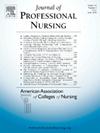Technostress among digital generations nurse educators in South-Central Mindanao Philippines
IF 2.9
3区 医学
Q1 NURSING
引用次数: 0
Abstract
Background
Technostress is a modern adaptation issue resulting from the difficulty of adapting to technological use. Integrating technology in teaching and learning during the sudden shift of teaching modalities exposes nursing educators to technostress.
Aim
To determine and compare the levels of technostress experienced by digital native and digital immigrant nurse educators during the abrupt change in the teaching-learning environment brought on by the COVID-19 pandemic.
Methods
A descriptive-comparative design was employed involving 115 nurse educators in the South-Central Mindanao region, Philippines, who were categorized into digital natives and digital immigrants. A 28-item Teacher's Technostress Level Determination Scale (TTLDS) questionnaire was used to collect the data. An unpaired t-test was used to compare the data between the two groups.
Results
Both groups reported having high technostress in the learning-teaching process-oriented domain. Digital natives reported low technostress in the personal-oriented domain, while digital immigrants have low technostress in profession-oriented and technical-issue-oriented domains. However, the t-test results showed no significant difference in the stress levels that both groups perceived.
Conclusions
Technology use was reported to have a negative psychological impact on nurse educators, especially regarding stress. Better exploration of technostress and how the technology affects nurse educators may help protect their physical and psychological well-being.
菲律宾棉兰老岛中南部的数字一代护士教育工作者中的技术压力
技术应激是由于适应技术使用的困难而引起的现代适应问题。在教学方式的突然转变中,将技术融入教学和学习使护理教育工作者面临技术压力。目的确定和比较2019冠状病毒病(COVID-19)大流行带来的教学环境突变期间,数字本地和数字移民护士教育工作者所经历的技术压力水平。方法采用描述性比较设计,将菲律宾棉兰老岛中南部地区115名护士教育工作者分为数字原住民和数字移民两类。采用教师技术压力水平测定量表(TTLDS)进行问卷调查。采用非配对t检验对两组数据进行比较。结果两组学生在以学习-教学过程为导向的领域均表现出较高的技术压力。数字原生代在个人导向领域的技术压力较低,而数字移民在专业导向和技术问题导向领域的技术压力较低。然而,t检验结果显示两组感知到的压力水平没有显著差异。结论科技的使用对护理工作者的心理有负面影响,尤其是在压力方面。更好地探索技术压力以及技术如何影响护士教育工作者,可能有助于保护他们的身心健康。
本文章由计算机程序翻译,如有差异,请以英文原文为准。
求助全文
约1分钟内获得全文
求助全文
来源期刊
CiteScore
4.80
自引率
8.00%
发文量
153
审稿时长
52 days
期刊介绍:
The Journal will accept articles that focus on baccalaureate and higher degree nursing education, educational research, policy related to education, and education and practice partnerships. Reports of original work, research, reviews, insightful descriptions, and policy papers focusing on baccalaureate and graduate nursing education will be published.

 求助内容:
求助内容: 应助结果提醒方式:
应助结果提醒方式:


